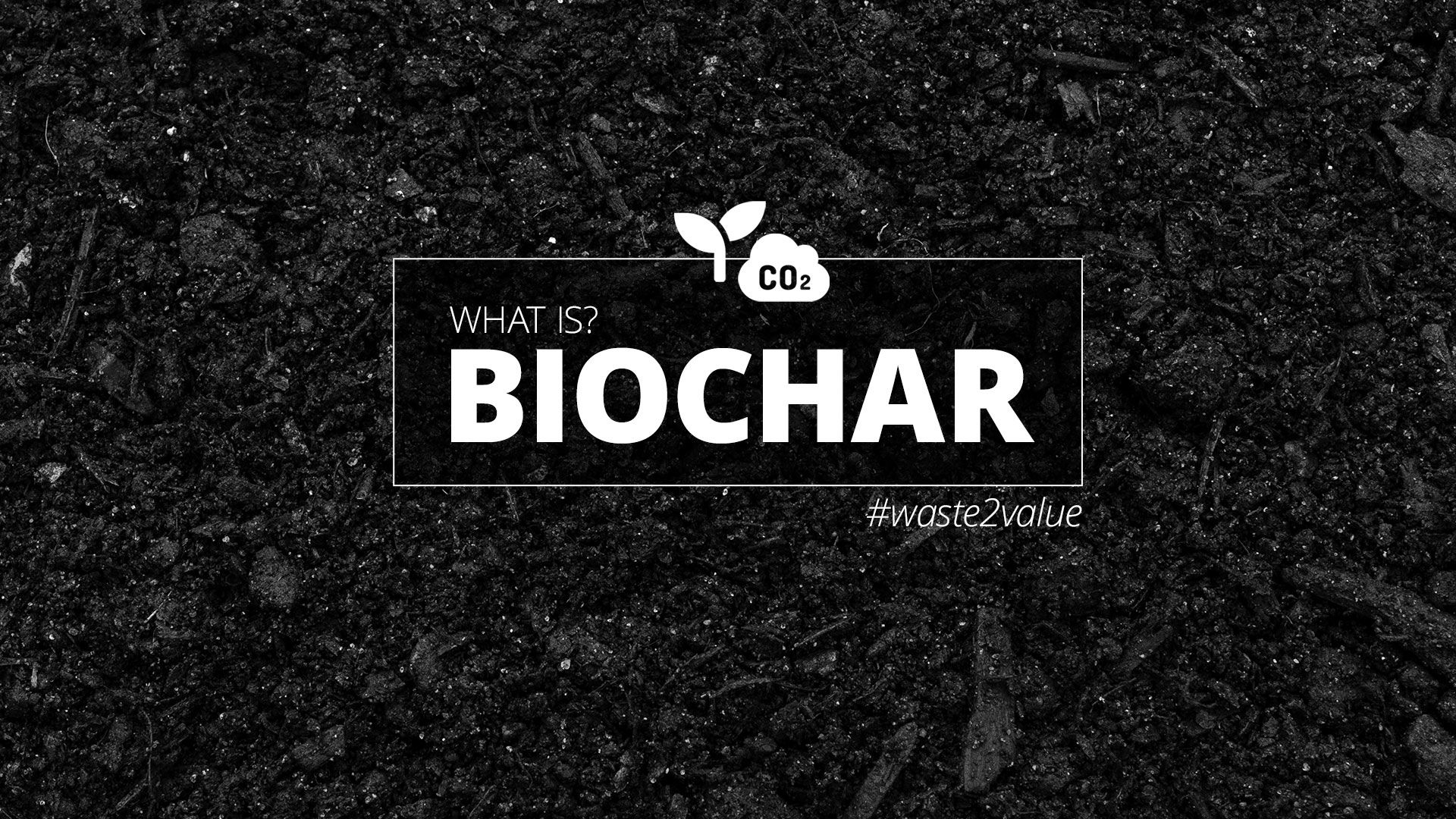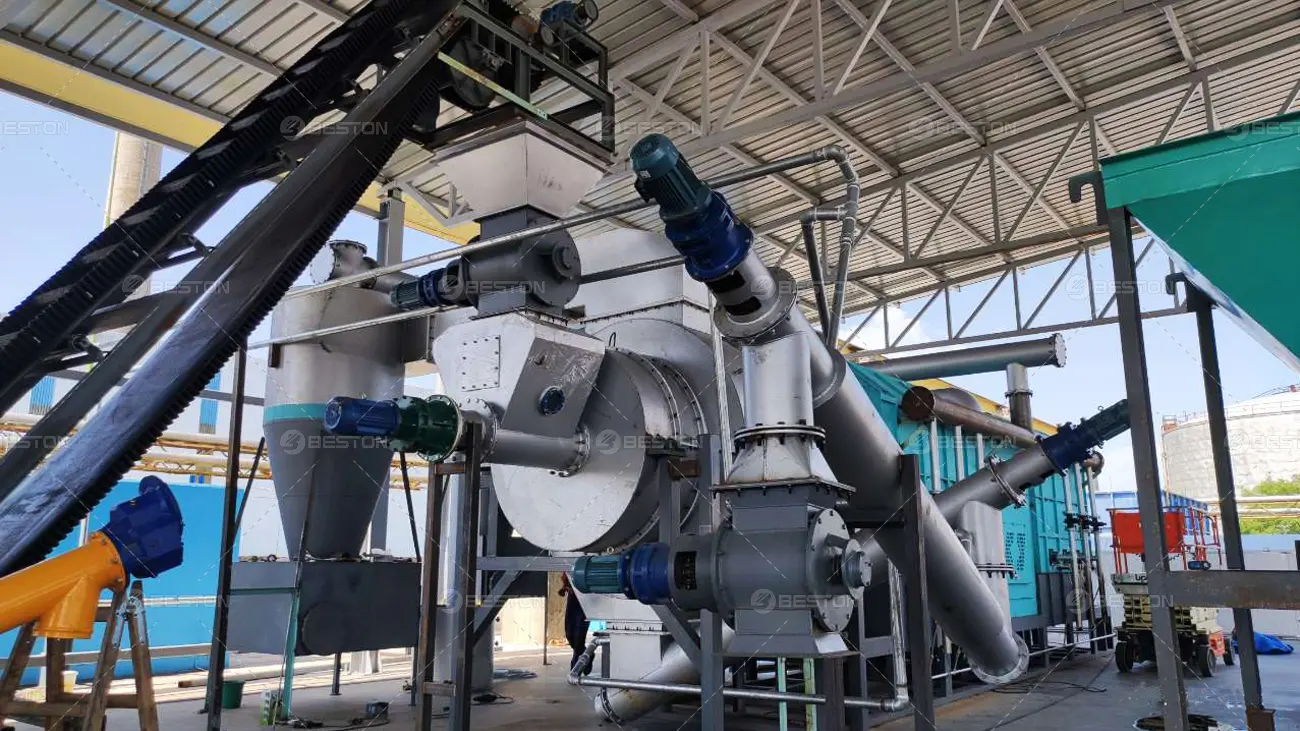Introduction:
Biochar, a carbon-rich material produced from the pyrolysis of organic waste, is rapidly gaining recognition worldwide for its diverse applications, environmental benefits, and market potential. In Vietnam, a country with a robust agricultural sector, biochar made from agricultural waste holds significant promise. By transforming agricultural byproducts such as rice husks, corn stalks, coconut shells, and other residues into biochar, Vietnam can not only reduce waste but also contribute to environmental sustainability and economic growth.In this blog, we’ll explore the uses, production process, and market potential of biochar made from agricultural waste in Vietnam.

What is Biochar?Biochar is a form of charcoal produced through the process of pyrolysis, where organic material is heated in the absence of oxygen. This process converts the carbon content of agricultural waste into a stable form that can be used for various purposes. Biochar is rich in carbon, and its properties make it an excellent soil amendment, water purifier, and environmental remediator.When applied to soil, biochar helps improve soil structure, enhance nutrient and water retention, and promote healthier plant growth. It can also be used in wastewater treatment, air purification, and even as an energy source.
How Biochar is Produced from Agricultural Waste in VietnamVietnam is an agricultural powerhouse, producing a vast amount of biomass waste each year. The country's major crops, including rice, corn, coconut, and coffee, generate large quantities of byproducts such as rice husks, corn stalks, and coconut shells. These residues are often discarded or burned, leading to environmental pollution. However, when these materials are converted into biochar through pyrolysis, they offer a sustainable way to reduce waste and generate valuable products.The production of biochar from agricultural waste follows a few key steps:
- Collection of Agricultural Residues: The first step in biochar production is collecting organic waste from farms. In Vietnam, common sources of agricultural residues include rice husks (from rice farming), corn stalks, coconut shells, and palm leaves.
- Preparation of the Biomass: After collection, the biomass is prepared for pyrolysis. This usually involves drying the material to reduce its moisture content, as wet biomass would be inefficient for the pyrolysis process.
- Pyrolysis Process: The prepared biomass is then placed in a pyrolysis reactor, where it is heated in the absence of oxygen. The temperature typically ranges from 400°C to 600°C. The process converts the organic material into biochar, releasing volatile gases and liquids, which can be captured and used for energy.
- Cooling and Packaging: After pyrolysis, the biochar is cooled and ready for use. It is often ground into a fine powder or kept in its natural form (chunks or pellets) depending on its intended use.
- Optional: Secondary Use of Byproducts: The gases and oils released during pyrolysis can be captured and used for energy production or converted into other useful products, such as bio-oil and syngas.

Uses of Biochar:Biochar’s versatility makes it suitable for a wide range of applications, both in agriculture and other industries. Some of the primary uses of biochar produced from agricultural waste in Vietnam include:
- Soil Improvement and Agriculture:
- Soil Amendment: One of the most common uses of biochar is as a soil conditioner. When added to soil, biochar improves soil structure by increasing porosity, which helps with root penetration and water retention. It also enhances nutrient availability, making it especially beneficial for poor or degraded soils.
- Organic Farming: Biochar is popular in organic farming due to its ability to improve soil fertility without relying on synthetic fertilizers.
- Carbon Sequestration: Biochar's stable carbon content means it can lock carbon in the soil for hundreds or even thousands of years, making it an effective tool in combating climate change.
- Water Filtration:
- Wastewater Treatment: Biochar can be used as an effective filter in water purification systems, absorbing toxins, heavy metals, and other impurities. It is commonly used in industrial and municipal water treatment systems to help clean wastewater.
- Rainwater Filtration: In rural areas of Vietnam, biochar can be used to filter rainwater for household consumption, improving access to clean water.
- Energy Production:
- Bioenergy: During the pyrolysis process, the gases and oils released can be captured and converted into energy (bio-oil or syngas). This can be used for heating or power generation, providing an additional revenue stream for farmers and biochar producers.
- Carbon-Free Fuel: The biochar itself can also be used as a solid fuel for cooking or heating, particularly in remote regions of Vietnam where access to conventional fuels might be limited.
- Environmental Remediation:
- Air and Soil Pollution Control: Biochar has been shown to adsorb various pollutants from the air and soil, including pesticides and heavy metals. This makes it an ideal material for environmental remediation, especially in industrial areas or regions impacted by agricultural runoff.
Market Potential and Future of Biochar in VietnamThe market for biochar in Vietnam is expanding, driven by increasing awareness of its environmental benefits and the growing demand for sustainable farming practices. With agriculture being the backbone of the Vietnamese economy, the potential to transform agricultural waste into a valuable commodity is vast.
- Demand for Sustainable Agriculture Products:
- As global and local markets move toward more sustainable agricultural practices, the demand for organic fertilizers and soil amendments is rising. Biochar’s ability to improve soil quality without harming the environment positions it as a sought-after product in the agricultural industry.
- Government Support:
- The Vietnamese government is increasingly focused on sustainable agriculture and environmental protection. With initiatives like the National Action Plan on Climate Change and programs promoting cleaner production, biochar production from agricultural waste aligns with national environmental goals.
- Export Opportunities:
- As the global demand for sustainable products grows, there is potential for Vietnamese biochar to enter international markets. Countries in Southeast Asia, Europe, and North America are increasingly investing in sustainable agricultural solutions, creating opportunities for biochar producers in Vietnam to expand their reach.
- Local Use in Energy and Waste Management:
- Biochar production can serve local energy needs in rural areas of Vietnam, particularly in remote villages that rely on traditional biomass fuels. Additionally, biochar can play a significant role in waste management systems by reducing the environmental impact of agricultural waste burning.
Conclusion:Biochar made from agricultural waste in Vietnam presents an exciting opportunity for both environmental and economic growth. It not only helps in waste reduction but also provides sustainable solutions for agriculture, energy, and environmental remediation. As demand for eco-friendly products grows globally, biochar’s market potential in Vietnam will continue to expand, supporting the country’s transition towards more sustainable farming practices and contributing to the global fight against climate change.By harnessing the power of agricultural waste and turning it into a valuable resource, Vietnam can lead the way in the production and use of biochar, benefiting both the environment and the economy.